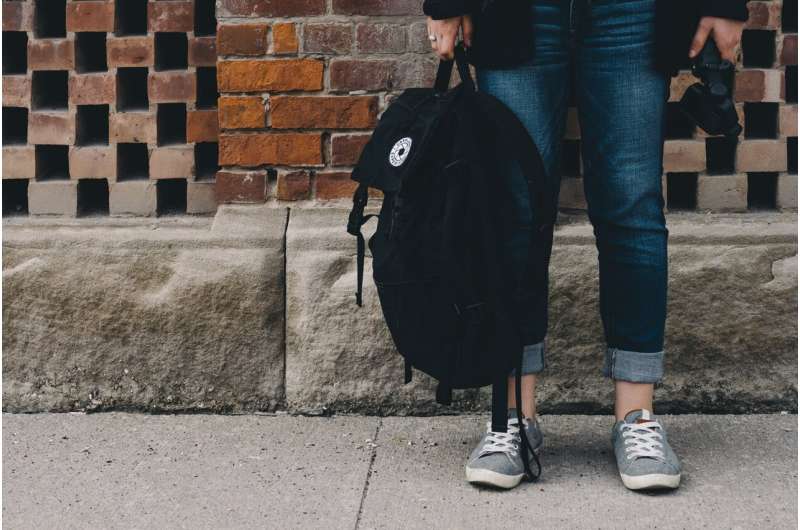This article has been reviewed according to Science X's editorial process and policies. Editors have highlighted the following attributes while ensuring the content's credibility:
fact-checked
trusted source
proofread
Children's well-being worsened over past six years during and after the pandemic, study finds

While COVID-19 lockdowns are no longer mandated, the stress and anxiety of the pandemic still lingers, especially among young South Australians, say health experts at the University of South Australia.
In a new study released today in JAMA Network Open, researchers show that children's mental health and well-being have gradually worsened over the past six years, particular during and post the pandemic.
Examining measures of well-being—life satisfaction, optimism, happiness, cognitive engagement, emotional regulation, perseverance, worry, and sadness—among more than 56,000 South Australian school children (in grades four to nine and aged 9–14) the study found that most well-being measures declined over time, consistently worsening from 2020 onward, which correlated with COVID-19.
It also found that female students, children in higher year levels, and students from lower socioeconomic cohorts were more likely to have poor well-being than their counterparts.
Well-being covers various dimensions of psychological, physical, emotional, cognitive, and social experiences. Higher well-being is associated with healthy lifestyle behaviors such as exercise, healthy eating, and self-esteem; and lower well-being is associated with smoking, alcohol, and drug use.
Lead researcher, UniSA's Dr. Dot Dumuid, says the COVID-19 pandemic has had long-lasting disruptions for Australian children.
"During the pandemic, children had to change the way they learn, play and socialize, all the while living in an environment of widespread uncertainty and anxiety," Dr. Dumuid says.
"Children and young people have dealt with school closures, isolation, social distancing and canceled extracurricular activities, and this has led to decreased levels of physical activity and increased sedentary time.
"Now that pandemic restrictions have been lifted, life has not necessarily gone back to how it was pre-pandemic. And when we assessed how children have fared in terms of well-being across this period, the news was not good.
"Well-being clearly dropped during COVID and has shown little signs of improvement since then. But certain groups were more affected than others, with worsening well-being particularly worrying for female students, students in later school grades, and students with socioeconomic disadvantage."
The analysis was conducted on cross-sectional annual data between 2017–2022 from data in the South Australian Well-being and Engagement Collective census. Children self-reported responses.
Co researcher, Prof Carol Maher, says that while the data originates from South Australia, the implications are likely to be globally relevant.
"The COVID-19 pandemic, sweeping changes in children's lifestyles—from physical activity and screen time to sleep and diet—and the pervasive influence of social media aren't regional anomalies. They're global phenomena likely impacting children's well-being worldwide."
Dr. Dumuid says now is a particularly critical time to support young people's well-being.
"There is a clear indication that urgent and equitable support is needed to improve the well-being of all young people, particularly those facing disparity," Dr. Dumuid says.
"This is not only important for children's present experiences, but also their future potential.
"Of particular concern is that the data shows worsening of well-being in children of the same age, which indicates that children aged 9–14 are at-risk age groups for poor mental health.
"While there are suggestions that reduced physical activity and increased use of social media and screens may be contributing to poor well-being, more research in this area is needed."
Initiatives such as the Federal Government's release of a new National Well-being Framework, and the South Australian Department for Education's School Mental Health Service are welcomed, Dr. Dumuid says.
"Managing well-being and mental health in young people requires a whole-of-community approach," Dr. Dumuid says.
"Government and school well-being programs are certainly a step in the right direction, but a lot more needs to be done to ensure this young group of Australians does not slip through the cracks.
"Everyone has a responsibility to look out for the next generation. We all play a role in the overall well-being of our kids."
More information: Trends in Well-being among youth in Australian,2017-2022, JAMA Network Open (2023). DOI: 10.1001/jamanetworkopen.2023.30098


















